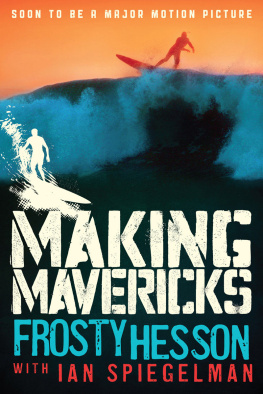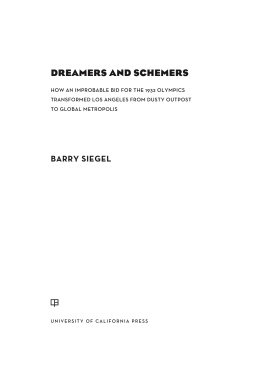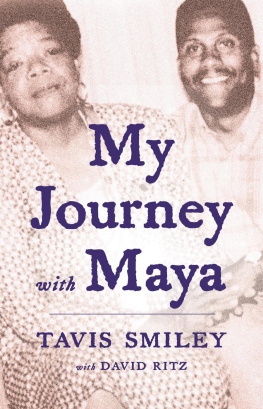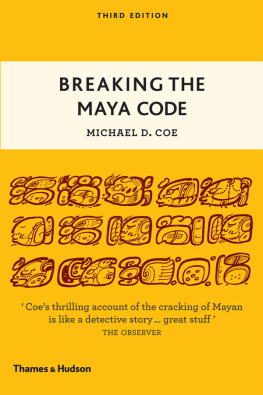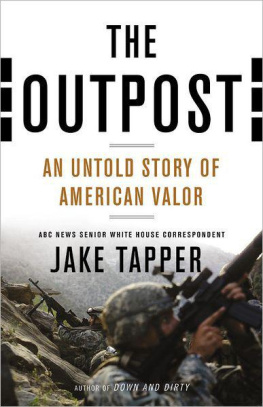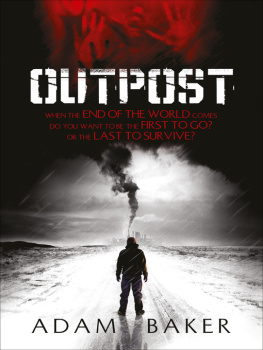Maya Rao - Great American Outpost: Dreamers, Mavericks, and the Making of an Oil Frontier
Here you can read online Maya Rao - Great American Outpost: Dreamers, Mavericks, and the Making of an Oil Frontier full text of the book (entire story) in english for free. Download pdf and epub, get meaning, cover and reviews about this ebook. year: 2018, publisher: PublicAffairs, genre: Detective and thriller. Description of the work, (preface) as well as reviews are available. Best literature library LitArk.com created for fans of good reading and offers a wide selection of genres:
Romance novel
Science fiction
Adventure
Detective
Science
History
Home and family
Prose
Art
Politics
Computer
Non-fiction
Religion
Business
Children
Humor
Choose a favorite category and find really read worthwhile books. Enjoy immersion in the world of imagination, feel the emotions of the characters or learn something new for yourself, make an fascinating discovery.

- Book:Great American Outpost: Dreamers, Mavericks, and the Making of an Oil Frontier
- Author:
- Publisher:PublicAffairs
- Genre:
- Year:2018
- Rating:4 / 5
- Favourites:Add to favourites
- Your mark:
- 80
- 1
- 2
- 3
- 4
- 5
Great American Outpost: Dreamers, Mavericks, and the Making of an Oil Frontier: summary, description and annotation
We offer to read an annotation, description, summary or preface (depends on what the author of the book "Great American Outpost: Dreamers, Mavericks, and the Making of an Oil Frontier" wrote himself). If you haven't found the necessary information about the book — write in the comments, we will try to find it.
Maya Rao: author's other books
Who wrote Great American Outpost: Dreamers, Mavericks, and the Making of an Oil Frontier? Find out the surname, the name of the author of the book and a list of all author's works by series.
Great American Outpost: Dreamers, Mavericks, and the Making of an Oil Frontier — read online for free the complete book (whole text) full work
Below is the text of the book, divided by pages. System saving the place of the last page read, allows you to conveniently read the book "Great American Outpost: Dreamers, Mavericks, and the Making of an Oil Frontier" online for free, without having to search again every time where you left off. Put a bookmark, and you can go to the page where you finished reading at any time.
Font size:
Interval:
Bookmark:
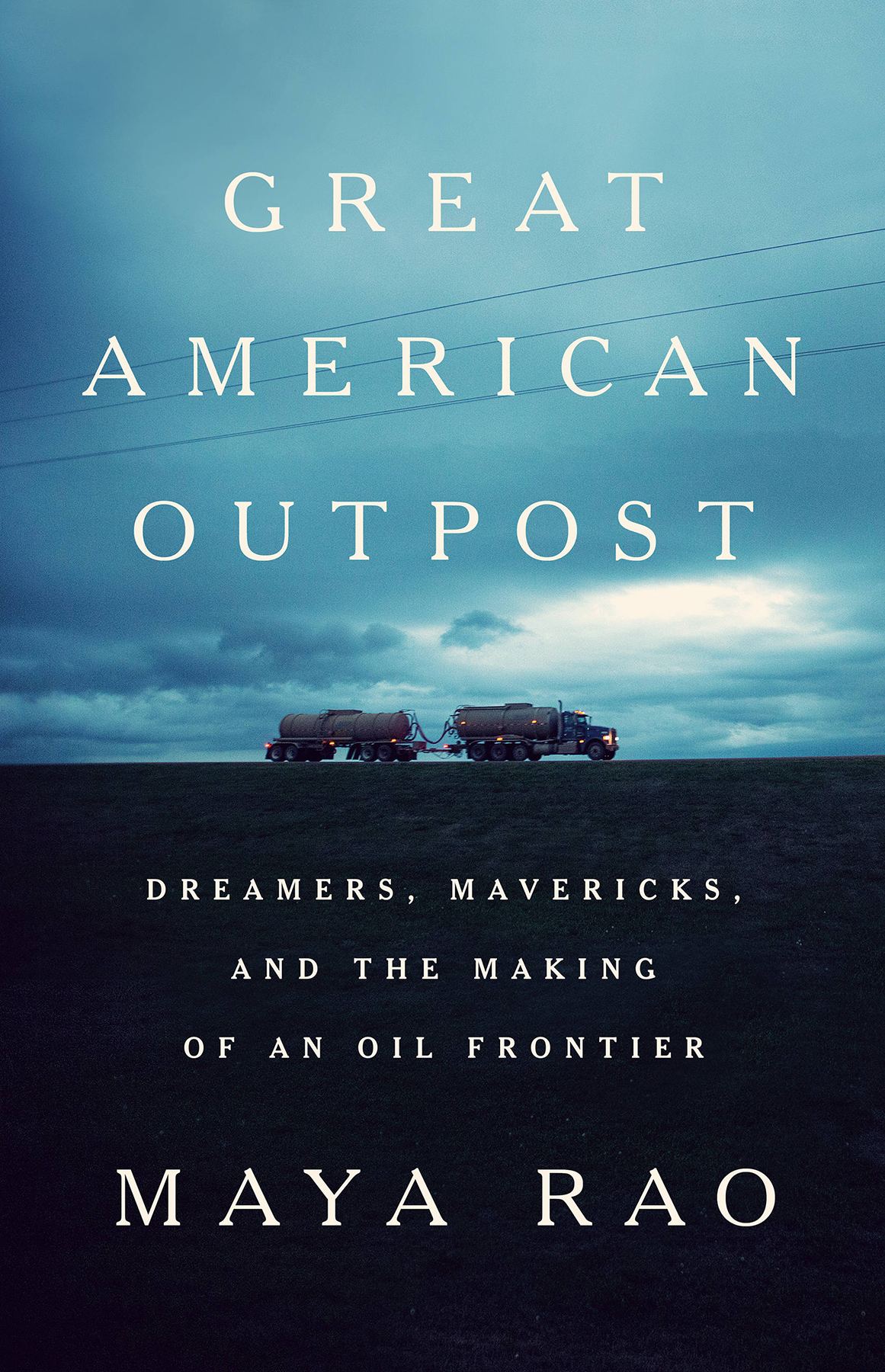
Copyright 2018 by Maya Rao
Hachette Book Group supports the right to free expression and the value of copyright. The purpose of copyright is to encourage writers and artists to produce the creative works that enrich our culture.
The scanning, uploading, and distribution of this book without permission is a theft of the authors intellectual property. If you would like permission to use material from the book (other than for review purposes), please contact permissions@hbgusa.com. Thank you for your support of the authors rights.
PublicAffairs
Hachette Book Group
1290 Avenue of the Americas, New York, NY 10104
www.publicaffairsbooks.com
@Public_Affairs
First Edition: April 2018
Published by PublicAffairs, an imprint of Perseus Books, LLC, a subsidiary of Hachette Book Group, Inc. The PublicAffairs name and logo is a trademark of the Hachette Book Group.
The Hachette Speakers Bureau provides a wide range of authors for speaking events. To find out more, go to www.hachettespeakersbureau.com or call (866) 376-6591.
The publisher is not responsible for websites (or their content) that are not owned by the publisher.
Library of Congress Control Number: 2017044028
ISBNs: 978-1-61039-646-2 (hardcover), 978-1-61039-647-9 (ebook)
E3-20180309-JV-NF
To my parents
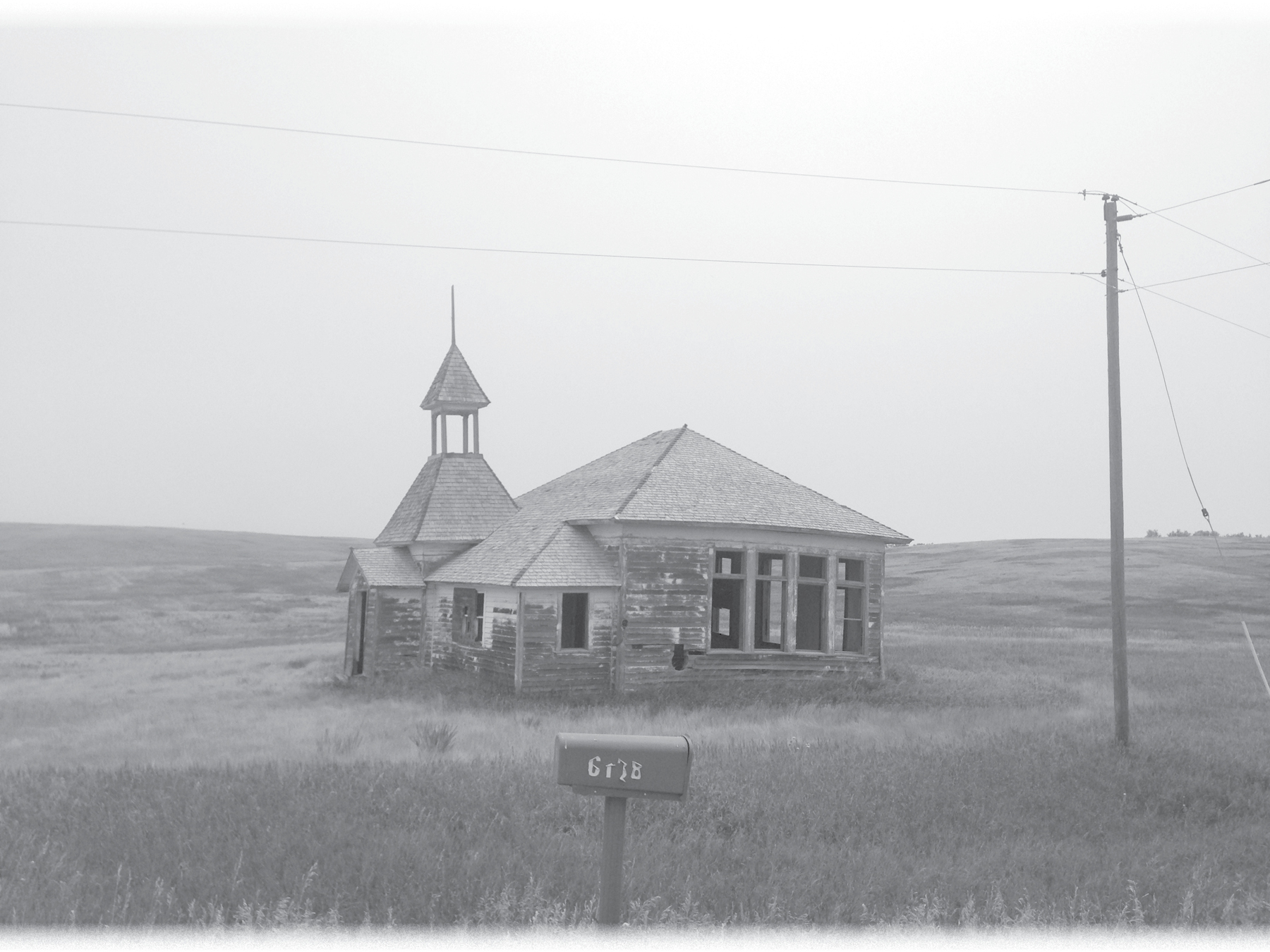
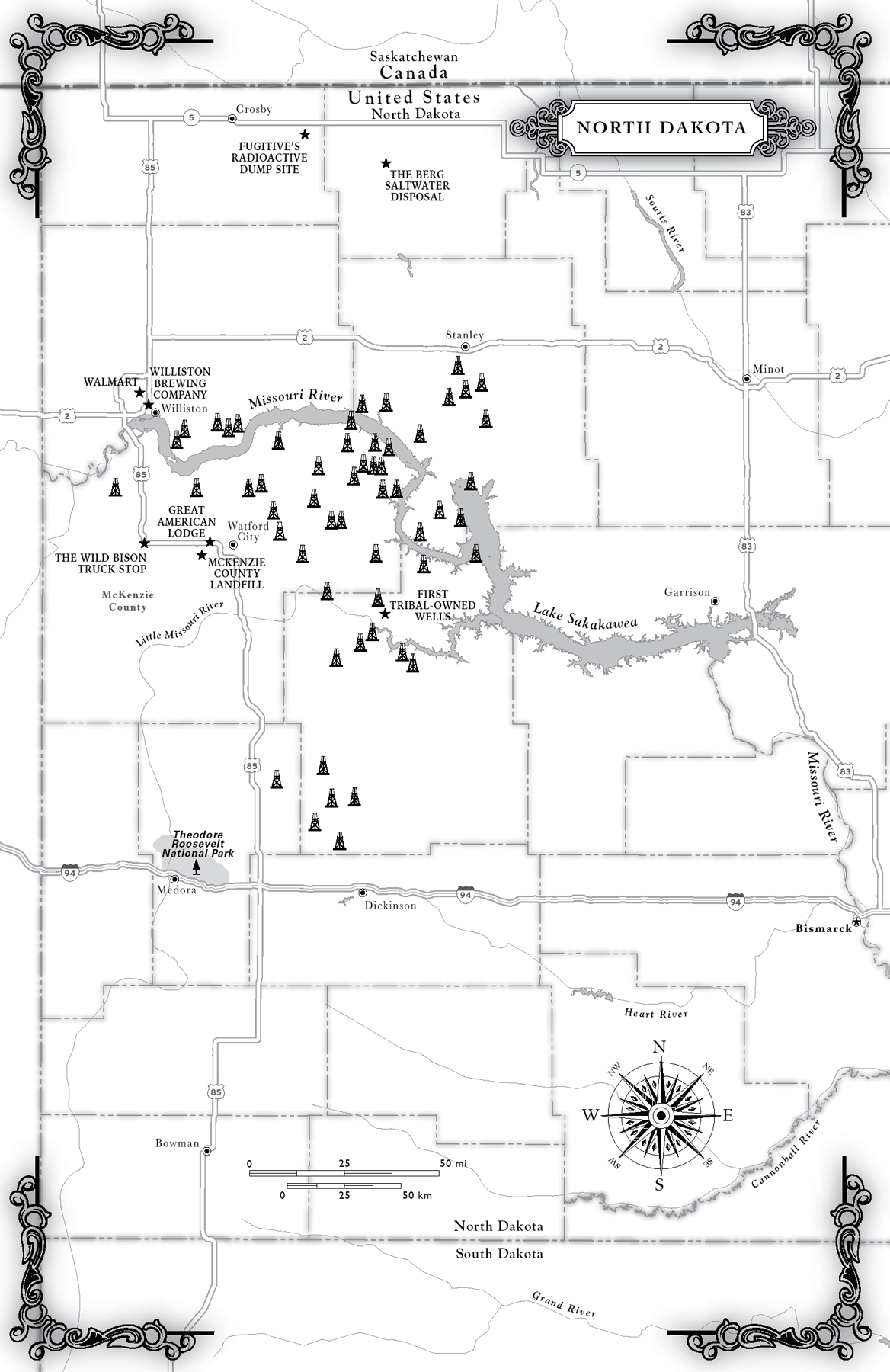
P ast the abandoned shack that said GREAT FOOD FAST and FOR SALE , rows of trailers lay forsaken in the weeds. Laborers had run out of time to install the doors and windows in several dwellings, and rain seeped through the openings. Cement slabs marked parking spots that had no vehicles. The dining hall was locked; the boot scrubbers on the porch had no mud in their bristles. Federal authorities had evicted the tenants. A banner had begun to drag off the chain-link fence, the red lettering barely decipherable: GREAT AMERICAN LODGE.
Once a symbol of prosperity in the North Dakota oilfield, the lodge had become a gallery of fortune gone to ruin. Investors from Hong Kong to Madrid were reeling from revelations that their money had vanished in a $62 million Ponzi scheme. The British developers had disappeared overseas. Only the squirrels remained, running along the tarp and pallets that lay scattered in the grass. I drove by several times a week for much of 2015, looking, to no avail, for the smallest change; eventually the lodge loomed as just another landmark fringed by weeds along the highway. A Colorado real estate broker who did business with the swindlers told me they could have done well enough without scamming. But no! he said. Greed, greed, greed!
schools to support a society that never grew as populous as planned. Farmers struggled against blizzards and droughts and meager harvests. Some starved. Many fled. Half of North Dakotas communities were losing people by the 1930s, when the states population peaked at nearly 681,000. Citizens clustered in the cities of Bismarck, Grand Forks, and Fargo. The western edge of the state faded into earthen bones as the young left for better prospects and the old died off. Loss and despair vexed the buttes and grasslands; it brooded in the savage emptiness and the derelictions of wood and blotched glass.
North Dakotas first oil discovery came in 1951 in the little town of Tioga, but the petroleum was difficult to extract profitably. A burst of oil development came in the 1980s, followed by a bust that stranded local governments with debt. By 2008, advances in hydraulic fracturing and horizontal drilling confirmed the largest domestic oil deposit since the discovery of the reserves under Prudhoe Bay, Alaska, four decades earlier. Billions of barrels of oil lay in the Bakken shale formation. Western North Dakota became an astonishing laboratory for the Darwinian, breakneck capitalism that one imagined was no longer possible in modern America, as outsiders engulfed the state to get rich, hide out, or start over. The states population grew for the first time in the lives of even its most elderly residents.
that the states remoteness had established it as a colonial hinterland dependent upon faraway markets.
Journalists from around the world came to North Dakota, often for just a few days. I was one of them, traveling from Minneapolis to the oilfield for a week in 2012. Yet most news stories could never capture the reality of itthe Bakken defied mainstream explanations. That place was an outpost of outcasts and dreamers and geniuses, an unending paradox in what it meant to be American, a phenomenon that called for nuanced reporting that captured the hopeful and the dark and the absurd. North Dakota! What a wild frontier. Who were all these people rushing in, and why? I tried to imagine the civilization they would build and its trajectory when the frenzy went away, the things the pioneers would leave behind. How might the natives regulate mass industrialization when they were so resistant to government intrusions, so protective of their own liberties? Observers always said this would be studied in history classes a century from now, and history demands a book.
I began going to North Dakota to pursue these inquiries more seriously in May 2014, stopping for gas near Fargo off Interstate 94, where there would invariably be some shifty-eyed man at the next pump overprobably just out on paroleand I would know, without either of us saying a word, that he was bound for the oilfield six hours across the state. That look. Freedom, desperation, adventure, meth, money it was perhaps the only time I would harbor a vague respect for a gas station ruffian. There was something so brave about heading out there that who one was mattered far less than that he was headed to the Bakken at all, and this was the truism that bound everyone.
It was such a novel place, so inscrutable to those whod never been, that the oilfield remained a secondhand story even to inhabitants of the more populous eastern edge of the state. Farmers and barflies I met on the way out warned against going out therenot that they had ever been, but theyd heard all about it. Seen it in other ways. Take Casselton, the little town where an oil train derailed in 2013 causing an inferno so tremendous that people could feel the heat through their windshields a half mile away. The following year, oil began displacing the farmers crops on the tracks, delaying their transport of grain. Warren Buffett can go screw himself, several farmers told me, alluding to the billionaires ownership of the Burlington NorthSanta Fe railroad. They already had a dim impression upon hearing of oil workers whod make $17,000 in a month or two, fly to Las Vegas, then come home broke and eat ramen noodles. And another fellow from Casselton speaking of the supposed violence: You wanted to go to a bar and have a beerphysical assault charges are up and someones going to beat you up? You can go get a six-pack and sit home and watch Wheel of Fortune.
One could travel there by taking the interstate all the way across North Dakota, then going up Highway 85, which formed the backbone of the oilfield and ran 1,479 miles from El Paso to the Canadian border. But to really understand the place, a traveler ought to make a series of northern and westerly turns from Jamestown and its iconic buffalo sculpture, into long and green hollows of feral quiet that ran hundreds of miles. Get out in some smudge of a town like Harvey to fill the tank againshiver in the eyes of stillness that beamed over that endless expanseretreat to the car as if to escape forces that would pull a human interloper into the fissures of the earth. Remember this upon arriving at the western flank of the state, where trucks and rigs and men ran roughshod and nature was the trespasser.
Font size:
Interval:
Bookmark:
Similar books «Great American Outpost: Dreamers, Mavericks, and the Making of an Oil Frontier»
Look at similar books to Great American Outpost: Dreamers, Mavericks, and the Making of an Oil Frontier. We have selected literature similar in name and meaning in the hope of providing readers with more options to find new, interesting, not yet read works.
Discussion, reviews of the book Great American Outpost: Dreamers, Mavericks, and the Making of an Oil Frontier and just readers' own opinions. Leave your comments, write what you think about the work, its meaning or the main characters. Specify what exactly you liked and what you didn't like, and why you think so.

